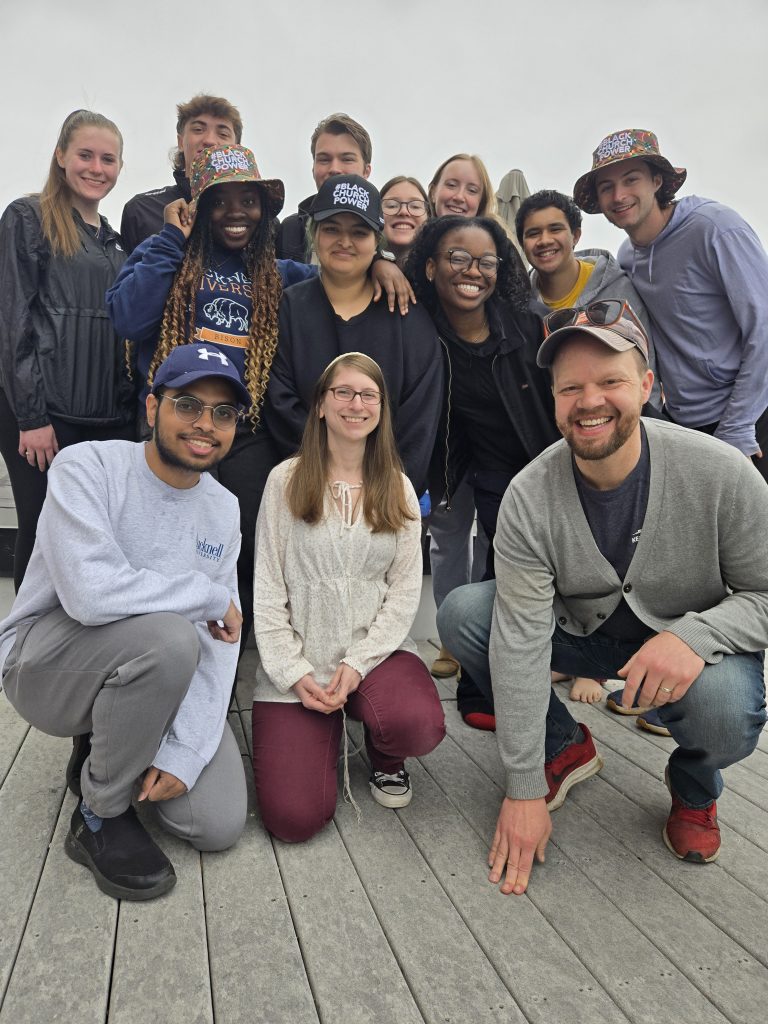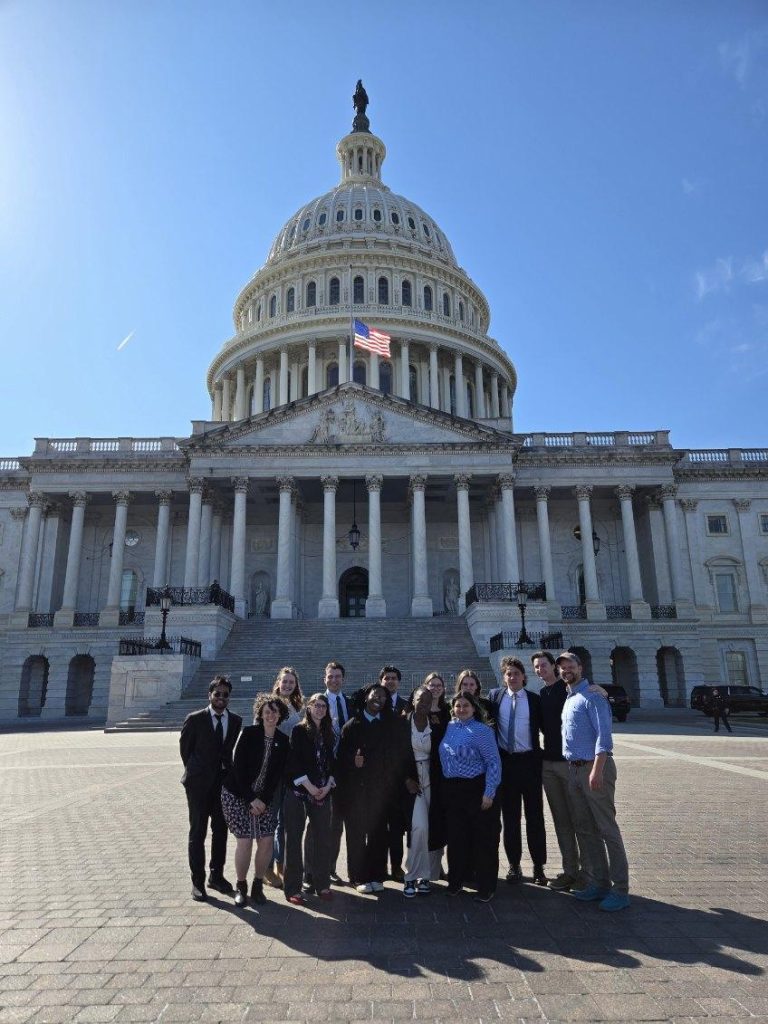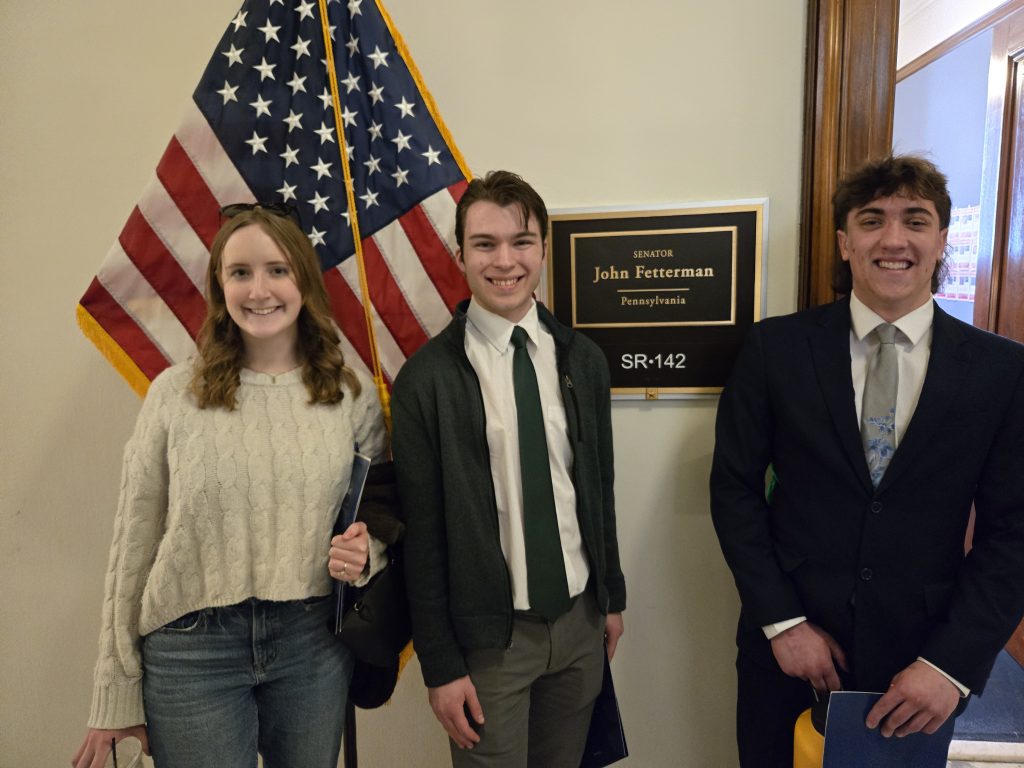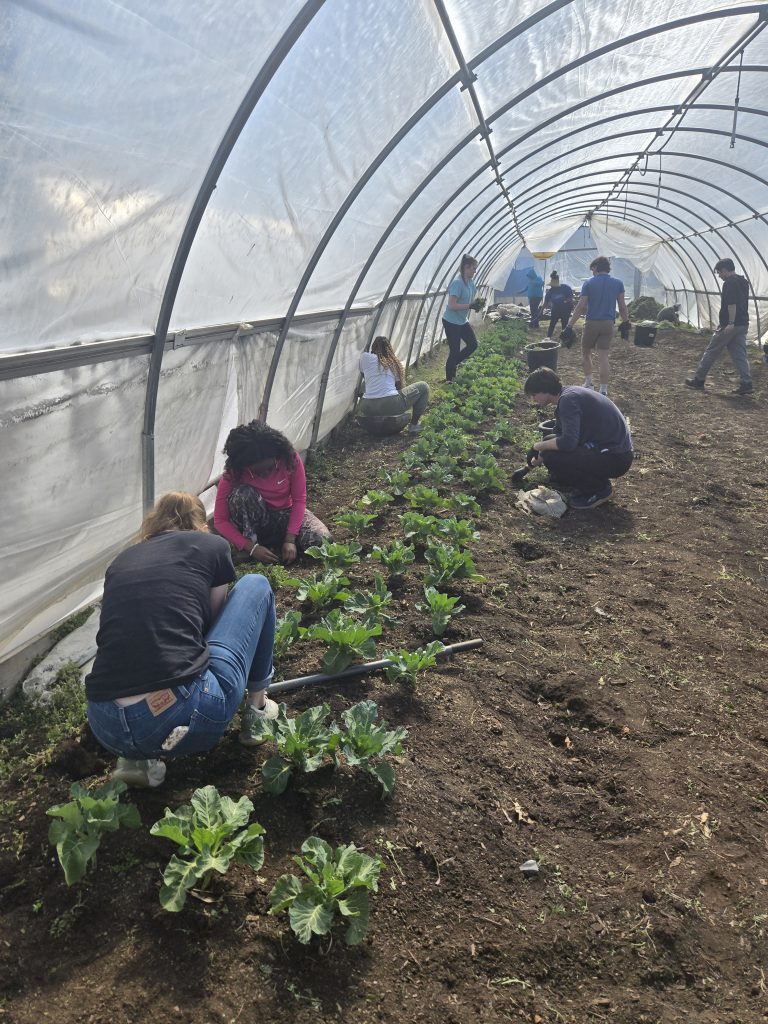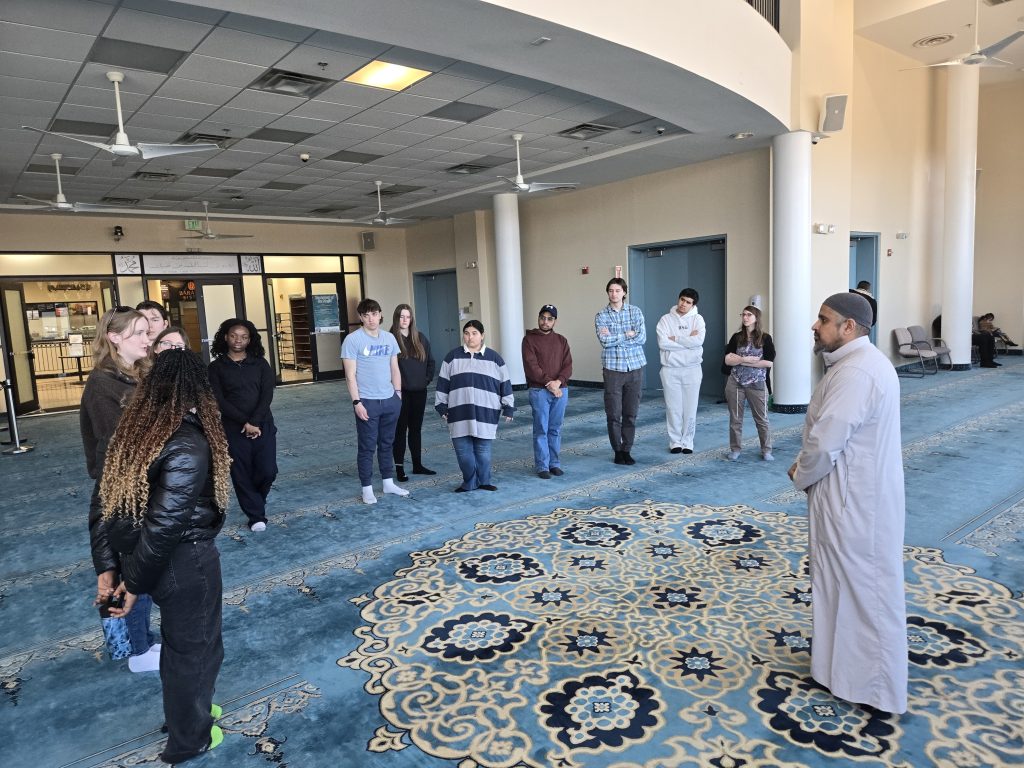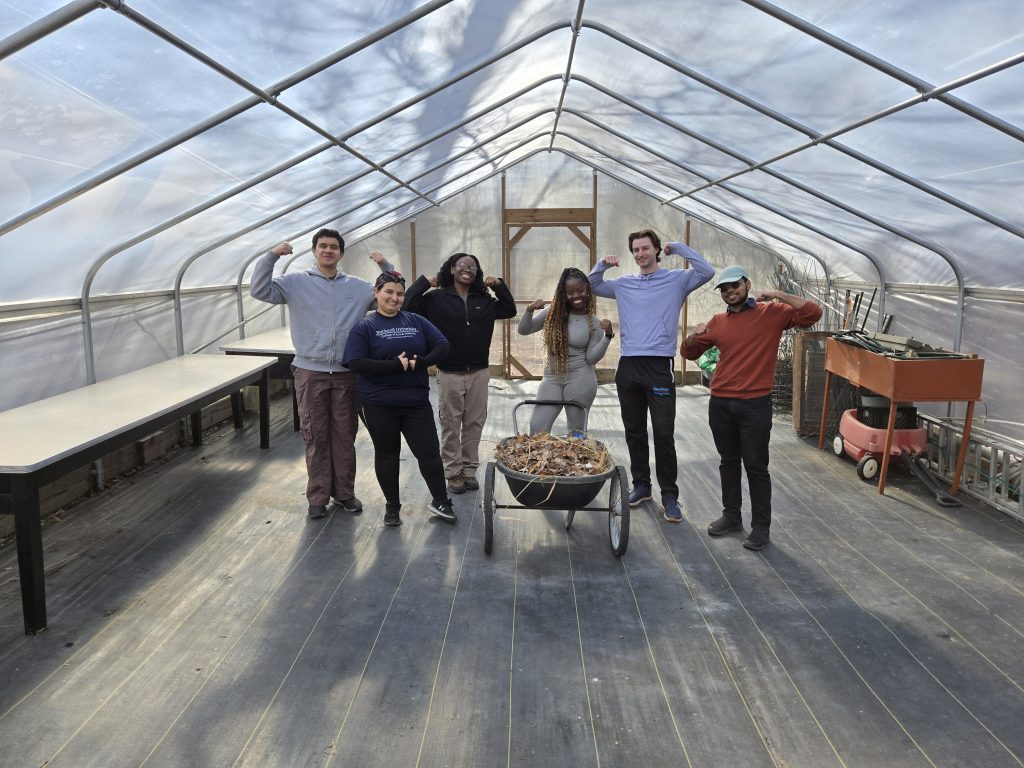Oluwasefunmi Oluwafemi ’25
To: Family and Friends
I hope this letter finds you well. Many of us went through a whirlwind of emotions during the trip—from our landing with The Black Church Food Security Network to our lobbying on Capitol Hill with Bread for America, and all the way to our final moments in our Airbnb, where we spent most of our time in community with each other. In these moments, we felt hope, powerlessness, and restoration.
On Thursday, March 13, 2025, the cohort traversed through Baltimore again—visiting our folks at the Baltimore City Office of Food Policy and Planning and the Beth Am Synagogue. In our first venture, we were educated about how Baltimore City’s Food Policy and Planning team works together to provide more accessible ways to integrate SNAP benefits across farmers’ markets, grocery stores, and online markets. This discussion was extremely inspiring for me as a Baltimore City resident, as much of my childhood meals were funded by government assistance. To see the emphasis of this work centered not only on making benefits more accessible through projects like B-More Fresh and Food is Medicine, but also on nutrition education and community involvement, truly touched my heart.
Continue reading “The Start of Something New “